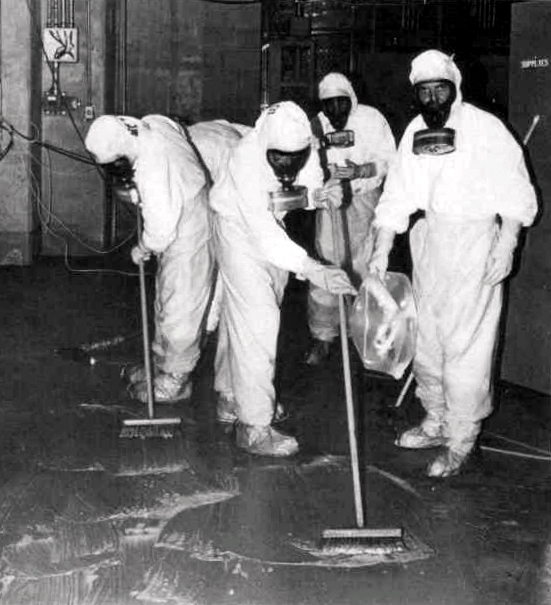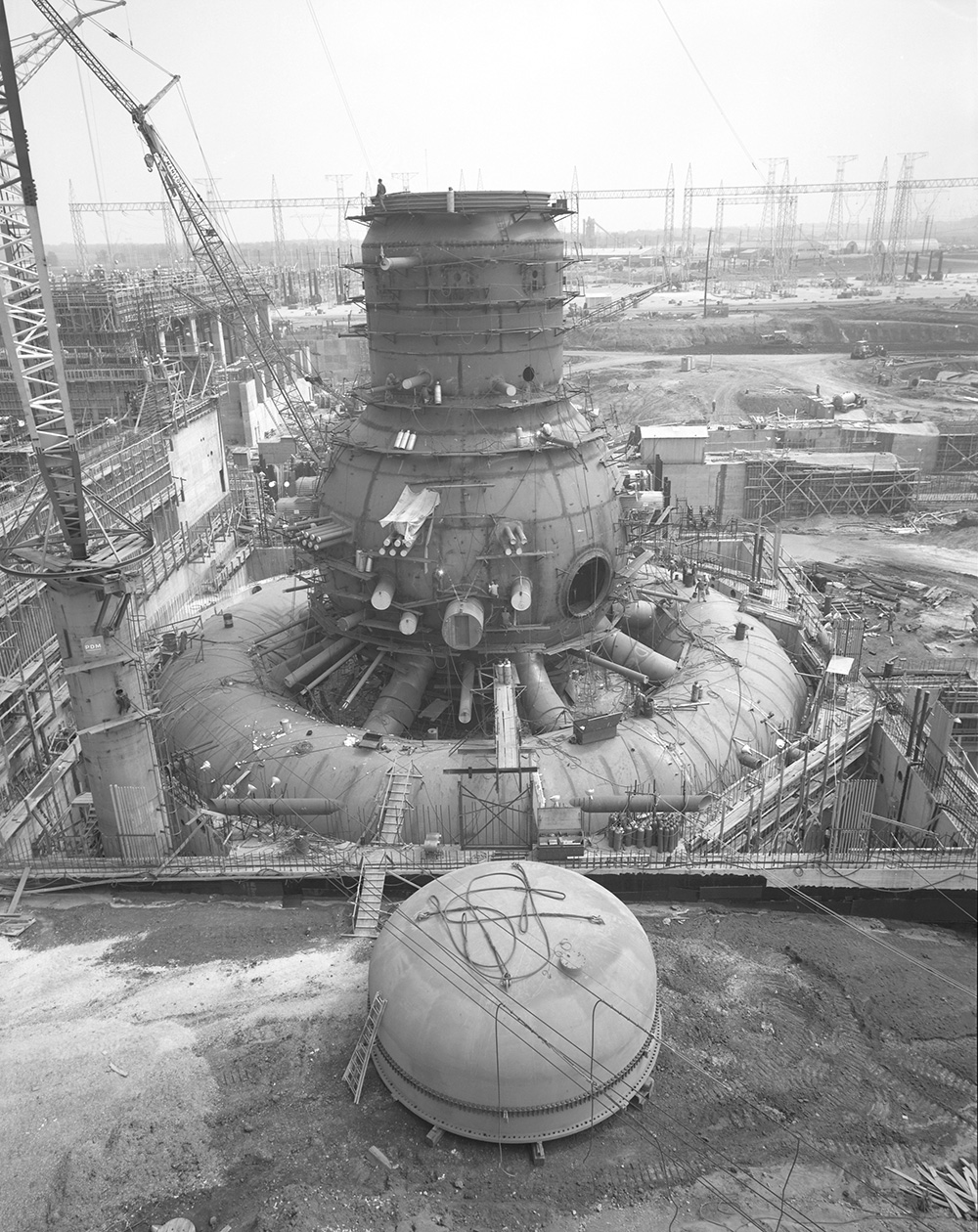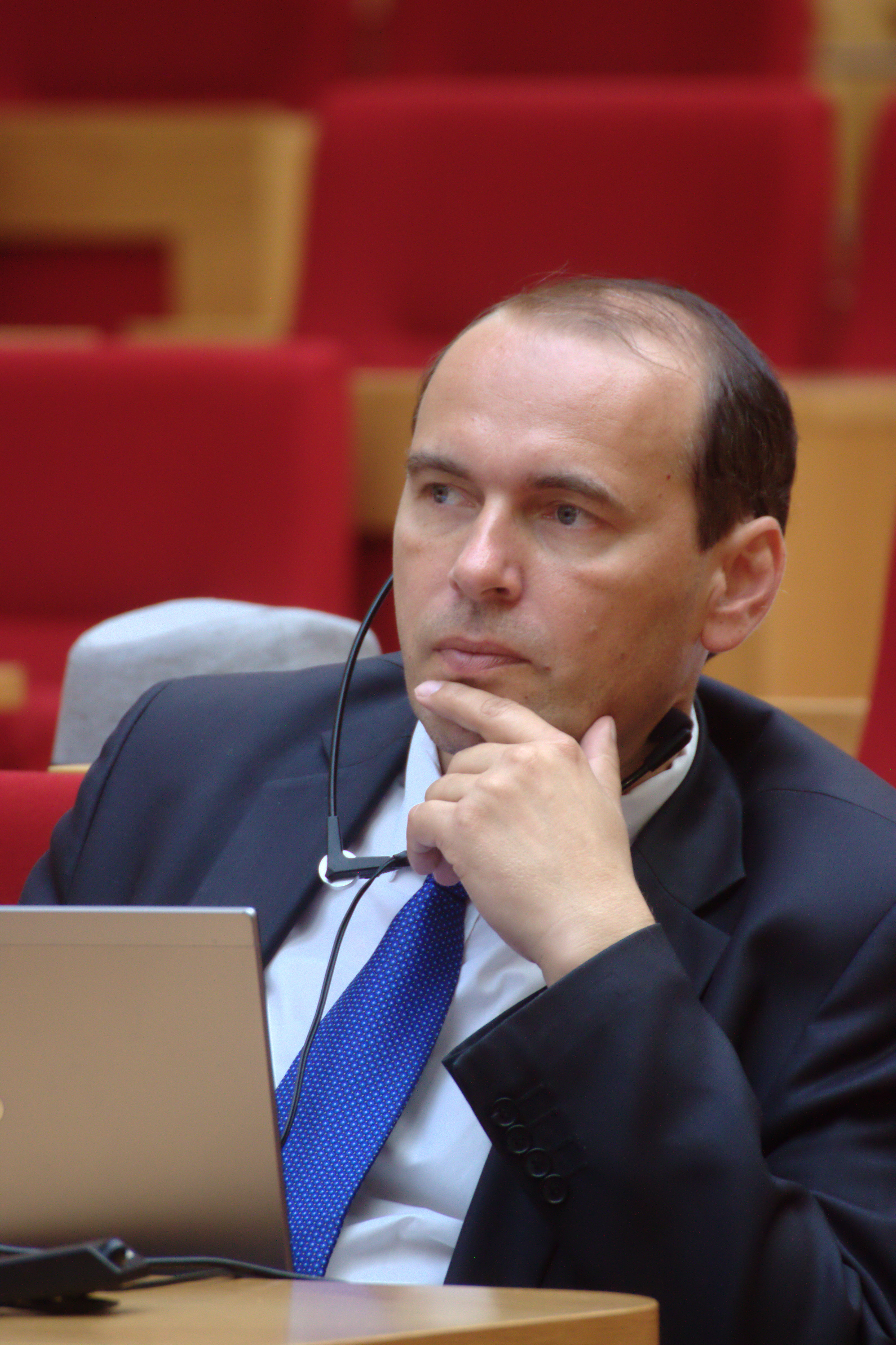|
George Galatis
George Galatis is a senior nuclear engineer and whistleblower who reported safety problems at the Millstone 1 Nuclear Power Plant, relating to reactor refueling procedures, in 1996.Shaw, William H. (2004)''Business Ethics'' pp. 267-268. The unsafe procedures meant that spent fuel rod pools at Unit 1 had the potential to boil, possibly releasing radioactive steam throughout the plant. Galatis was the subject of a ''Time'' magazine cover story on March 4, 1996. Millstone 1 was permanently closed in July 1998. Refueling procedures Every 18 months the Millstone 1 nuclear reactor was shut down so the fuel rods that make up its core could be replaced; the old rods, radioactive and burning hot, were moved into a 40-feet-deep body of water called the spent-fuel pool. One-third of the rods were moved into the pool under normal conditions. But in the 1990s Galatis realized that Millstone was routinely performing "full-core off-loads", moving all the hot fuel into the spent-fuel pool. In add ... [...More Info...] [...Related Items...] OR: [Wikipedia] [Google] [Baidu] |
Nuclear Engineering
Nuclear engineering is the branch of engineering concerned with the application of breaking down atomic nuclei ( fission) or of combining atomic nuclei (fusion), or with the application of other sub-atomic processes based on the principles of nuclear physics. In the sub-field of nuclear fission, it particularly includes the design, interaction, and maintenance of systems and components like reactors, power plants, or weaponry. The field also includes the study of medical and other applications of radiation, particularly Ionizing radiation, nuclear safety, heat/thermodynamics transport, nuclear fuel, or other related technology (e.g., radioactive waste disposal) and the problems of nuclear proliferation. This field also includes chemical engineering and electrical engineering. Professional areas The United States currently generates about 20% of its electricity from nuclear power plants. Nuclear engineers in this field generally work, directly or indirectly, in the nuclea ... [...More Info...] [...Related Items...] OR: [Wikipedia] [Google] [Baidu] |
Nuclear Safety
Nuclear safety is defined by the International Atomic Energy Agency (IAEA) as "The achievement of proper operating conditions, prevention of accidents or mitigation of accident consequences, resulting in protection of workers, the public and the environment from undue radiation hazards". The IAEA defines nuclear security as "The prevention and detection of and response to, theft, sabotage, unauthorized access, illegal transfer or other malicious acts involving nuclear materials, other radioactive substances or their associated facilities". This covers nuclear power plants and all other nuclear facilities, the transportation of nuclear materials, and the use and storage of nuclear materials for medical, power, industry, and military uses. The nuclear power industry has improved the safety and performance of reactors, and has proposed new and safer reactor designs. However, a perfect safety cannot be guaranteed. Potential sources of problems include human errors and external eve ... [...More Info...] [...Related Items...] OR: [Wikipedia] [Google] [Baidu] |
Living People
Related categories * :Year of birth missing (living people) / :Year of birth unknown * :Date of birth missing (living people) / :Date of birth unknown * :Place of birth missing (living people) / :Place of birth unknown * :Year of death missing / :Year of death unknown * :Date of death missing / :Date of death unknown * :Place of death missing / :Place of death unknown * :Missing middle or first names See also * :Dead people * :Template:L, which generates this category or death years, and birth year and sort keys. : {{DEFAULTSORT:Living people 21st-century people People by status ... [...More Info...] [...Related Items...] OR: [Wikipedia] [Google] [Baidu] |
American Whistleblowers
American(s) may refer to: * American, something of, from, or related to the United States of America, commonly known as the "United States" or "America" ** Americans, citizens and nationals of the United States of America ** American ancestry, people who self-identify their ancestry as "American" ** American English, the set of varieties of the English language native to the United States ** Native Americans in the United States, indigenous peoples of the United States * American, something of, from, or related to the Americas, also known as "America" ** Indigenous peoples of the Americas * American (word), for analysis and history of the meanings in various contexts Organizations * American Airlines, U.S.-based airline headquartered in Fort Worth, Texas * American Athletic Conference, an American college athletic conference * American Recordings (record label), a record label previously known as Def American * American University, in Washington, D.C. Sports teams Soccer * Ba ... [...More Info...] [...Related Items...] OR: [Wikipedia] [Google] [Baidu] |
People Associated With Nuclear Power
A person ( : people) is a being that has certain capacities or attributes such as reason, morality, consciousness or self-consciousness, and being a part of a culturally established form of social relations such as kinship, ownership of property, or legal responsibility. The defining features of personhood and, consequently, what makes a person count as a person, differ widely among cultures and contexts. In addition to the question of personhood, of what makes a being count as a person to begin with, there are further questions about personal identity and self: both about what makes any particular person that particular person instead of another, and about what makes a person at one time the same person as they were or will be at another time despite any intervening changes. The plural form "people" is often used to refer to an entire nation or ethnic group (as in "a people"), and this was the original meaning of the word; it subsequently acquired its use as a plural form of per ... [...More Info...] [...Related Items...] OR: [Wikipedia] [Google] [Baidu] |
Richard Levernier
Richard Levernier is an American nuclear whistleblower. Levernier worked for 23 years as a nuclear security professional, and identified security problems at U.S. nuclear facilities as part of his job. Specifically, after 9/11, he identified problems with contingency planning to protect US nuclear plants from terrorist attacks. He said that the assumption that attackers would both enter and exit from facilities was not valid, since suicide terrorists would not need to exit. In response to this complaint, the U.S. Department of Energy withdrew Levernier's security clearance and he was assigned to clerical work. Levernier approached the United States Office of Special Counsel (OSC), which handles US federal whistleblower matters. It took the OSC four years to vindicate Levernier, ruling that the department's retaliation was illegal – but the OSC could not reinstate Levernier's security clearance, so he was unable to regain work in nuclear security. See also *List of nuclear whis ... [...More Info...] [...Related Items...] OR: [Wikipedia] [Google] [Baidu] |
Nuclear Whistleblowers
There have been a number of nuclear whistleblowers, often nuclear engineers, who have identified safety concerns about nuclear power and nuclear weapons production. List Other nuclear whistleblowers * Chuck Atkinson * Dale G. Bridenbaugh * Joe Carson * Larry Criscione * Mark Gillespie * Lars-Olov Höglund * Carl HocevarFalk, Jim (1982). ''Global Fission:The Battle Over Nuclear Power'', p. 95. * David Hoffman * Avon Hudson * Shafiqul Islam * Carl Patrickson * Richard H. Perkins * Robert Pollard * John P. Shannon * Don Ranft * Zhores Medvedev * Ronald A. Sorri * Grigoris Lambrakis See also * Nuclear accidents in the United States * Nuclear safety * Anti-nuclear movement in the United States References External links * Watching the Watchdogs* ttp://www.whistleblower.org/ Government Accountability Project Whistleblower protection Org.* National Whistleblowers Center - Nuclear Whistleblowers {{DEFAULTSORT:Nuclear whistleblowers *Nuclear, List Nuclear whistleblowers Nu ... [...More Info...] [...Related Items...] OR: [Wikipedia] [Google] [Baidu] |
Nuclear Safety In The United States
Nuclear safety in the United States is governed by federal regulations issued by the Nuclear Regulatory Commission (NRC). The NRC regulates all nuclear plants and materials in the United States except for nuclear plants and materials controlled by the U.S. government, as well those powering naval vessels. The 1979 Three Mile Island accident was a pivotal event that led to questions about U.S. nuclear safety. Earlier events had a similar effect, including a 1975 fire at Browns Ferry Nuclear Power Plant, Browns Ferry and the 1976 testimonials of three concerned GE nuclear engineers, the GE Three. In 1981, workers inadvertently reversed pipe restraints at the Diablo Canyon Power Plant reactors, compromising seismic protection systems, which further undermined confidence in nuclear safety. All of these well-publicised events, undermined public support for the U.S. nuclear industry in the 1970s and the 1980s. In 2002, the USA had what former NRC Commissioner Victor Gilinsky termed "its ... [...More Info...] [...Related Items...] OR: [Wikipedia] [Google] [Baidu] |
Nuclear Accidents In The United States
The United States Government Accountability Office reported more than 150 incidents from 2001 to 2006 of nuclear plants not performing within acceptable safety guidelines. According to a 2010 survey of energy accidents, there have been at least 56 accidents at nuclear reactors in the United States (defined as incidents that either resulted in the loss of human life or more than US$50,000 of property damage). The most serious of these was the Three Mile Island accident in 1979. Davis-Besse Nuclear Power Plant has been the source of two of the top five most dangerous nuclear incidents in the United States since 1979. and Relatively few accidents have involved fatalities. Context Globally, there have been at least 99 (civilian and military) recorded nuclear reactor accidents from 1952 to 2009 (defined as incidents that either resulted in the loss of human life or more than US$50,000 of property damage, the amount the US federal government uses to define major energy accidents that ... [...More Info...] [...Related Items...] OR: [Wikipedia] [Google] [Baidu] |
Whistleblower
A whistleblower (also written as whistle-blower or whistle blower) is a person, often an employee, who reveals information about activity within a private or public organization that is deemed illegal, immoral, illicit, unsafe or fraudulent. Whistleblowers can use a variety of internal or external channels to communicate information or allegations. Over 83% of whistleblowers report internally to a supervisor, human resources, compliance, or a neutral third party within the company, hoping that the company will address and correct the issues. A whistleblower can also bring allegations to light by communicating with external entities, such as the media, government, or law enforcement. Whistleblowing can occur in either the private sector or the public sector. Retaliation is a real risk for whistleblowers, who often pay a heavy price for blowing the whistle. The most common form of retaliation is abrupt termination of employment. However, several other actions may also be conside ... [...More Info...] [...Related Items...] OR: [Wikipedia] [Google] [Baidu] |
Nuclear Accidents
A nuclear and radiation accident is defined by the International Atomic Energy Agency (IAEA) as "an event that has led to significant consequences to people, the environment or the facility. Examples include lethal effects to individuals, large radioactivity release to the environment, reactor core melt." The prime example of a "major nuclear accident" is one in which a reactor core is damaged and significant amounts of radioactive isotopes are released, such as in the Chernobyl disaster in 1986 and Fukushima nuclear disaster in 2011. The impact of nuclear accidents has been a topic of debate since the first nuclear reactors were constructed in 1954 and has been a key factor in public concern about nuclear facilities.M.V. Ramana. Nuclear Power: Economic, Safety, Health, and Environmental Issues of Near-Term Technologies, ''Annual Review of Environment and Resources'', 2009, 34, p. 136. Technical measures to reduce the risk of accidents or to minimize the amount of radioac ... [...More Info...] [...Related Items...] OR: [Wikipedia] [Google] [Baidu] |
List Of Nuclear Whistleblowers
There have been a number of nuclear whistleblowers, often nuclear engineers, who have identified safety concerns about nuclear power and nuclear weapons production. List Other nuclear whistleblowers * Chuck Atkinson * Dale G. Bridenbaugh * Joe Carson * Larry Criscione * Mark Gillespie * Lars-Olov Höglund * Carl HocevarFalk, Jim (1982). ''Global Fission:The Battle Over Nuclear Power'', p. 95. * David Hoffman * Avon Hudson * Shafiqul Islam * Carl Patrickson * Richard H. Perkins * Robert Pollard * John P. Shannon * Don Ranft * Zhores Medvedev * Ronald A. Sorri * Grigoris Lambrakis See also * Nuclear accidents in the United States * Nuclear safety * Anti-nuclear movement in the United States References External links * Watching the Watchdogs* ttp://www.whistleblower.org/ Government Accountability Project Whistleblower protection Org.* National Whistleblowers Center - Nuclear Whistleblowers {{DEFAULTSORT:Nuclear whistleblowers *Nuclear, List Nuclear whistleblowers Nu ... [...More Info...] [...Related Items...] OR: [Wikipedia] [Google] [Baidu] |

_1938.jpg)




